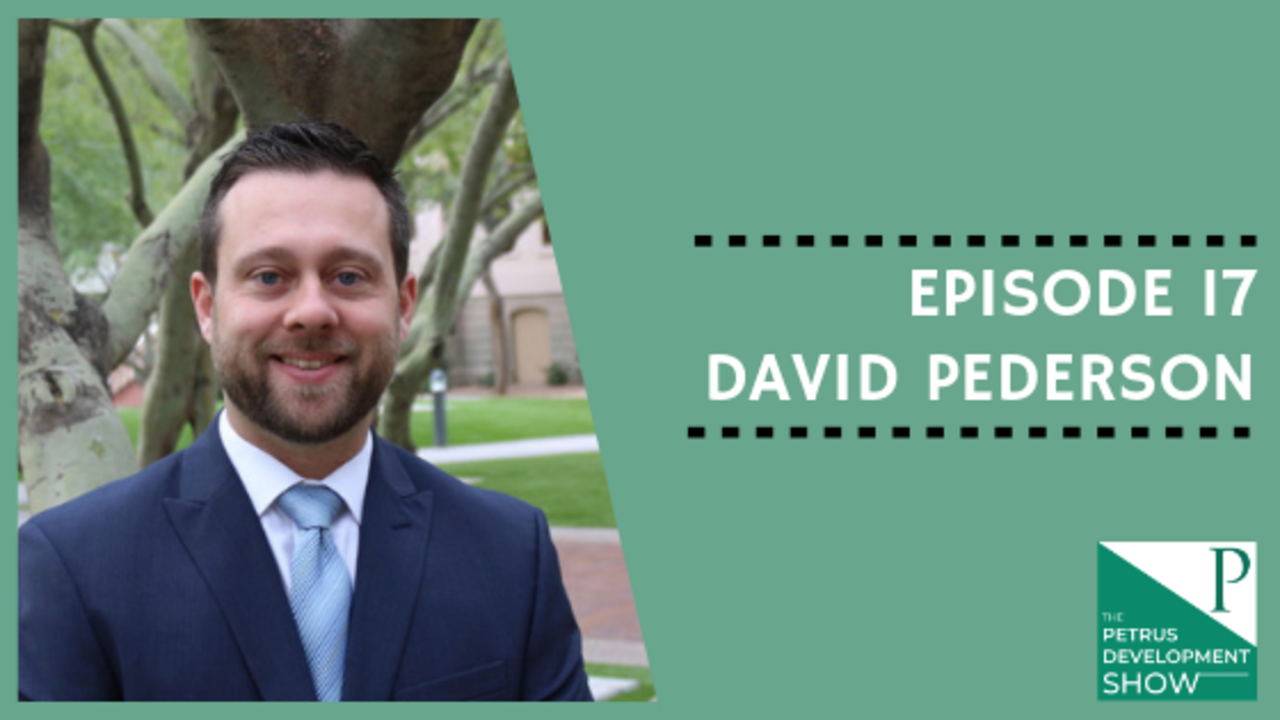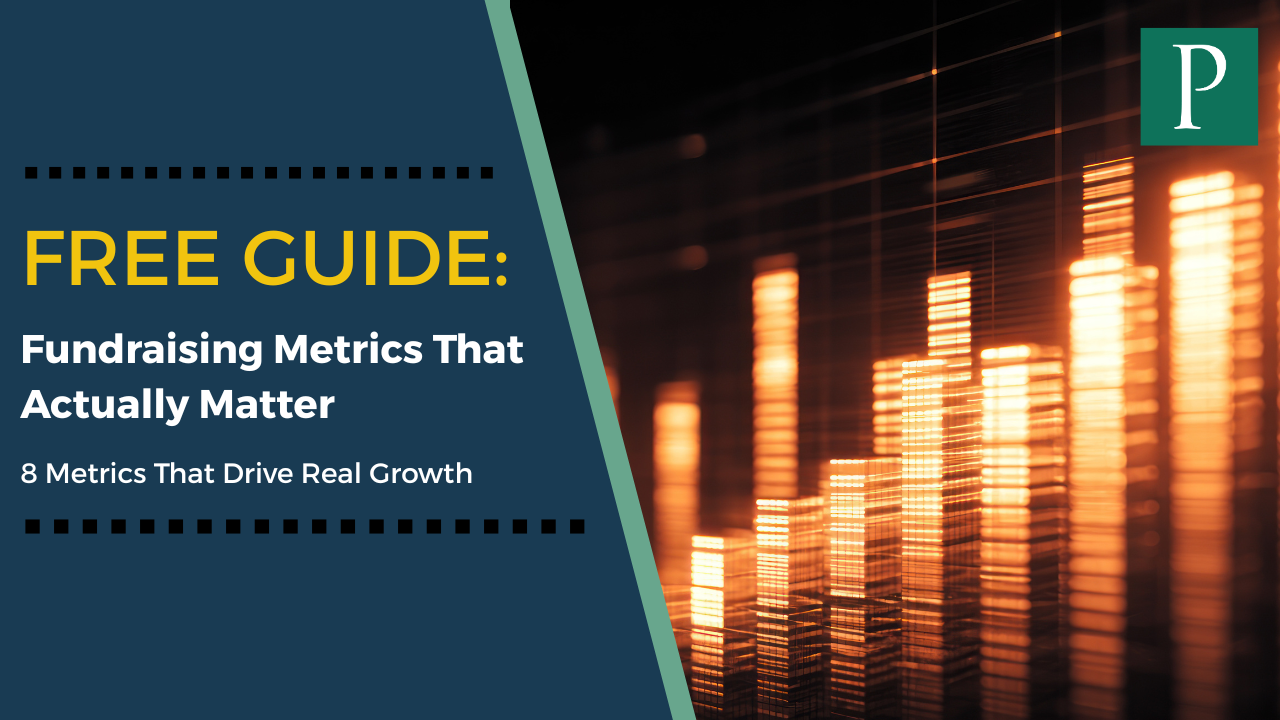Continuing the Legacy: Interview with David Pederson

David Pederson has been the Director of Development for the Catholic Community Foundation for the Diocese of Phoenix since 2013. He has worked in development for over ten years at multiple Catholic campus ministries and the Diocese of Phoenix. In this episode, Andrew and David explore the basics of planned giving: What is it? What types of gifts are made in this type of giving? As well as how to approach donors about planned giving and how to begin a program like that at the Catholic Community Foundation for the Diocese of Phoenix. David offers practical advice for the development professional wanting to explore planned giving as an option for future growth of their ministry.
Show Notes:
- David Grew up in Minnesota. Non Catholic. Went to Minnesota State University in Mancato. Met his wife, who was Catholic and asked him to come to Mass with her.
- Not a big enough space in the Newman Center for Mass. Got involved at the Newman Center and he started talking with the priest about different ways to raise money.
- The Bishop saw that lots of vocations were coming from the Newman Center and got interested in raising money for the center.
- Fr. Tim asked David if he might be interested in working in some sort of development role. (even though he wasn’t Catholic)
- Became Catholic in 2010
- Petrus Development Conference in 2011. Met Fr. Rob Clemmons who asked if he would be interested in working at the Newman Center in Phoenix, Arizona. Has since gotten into Planned Giving at the Catholic Community Foundation.
What is Planned Giving?
- A lot of people don’t really know what development is. David doesn’t like to put a title on it. He says it’s forming relationships with people and helping them to accomplish what they want to philanthropically.
- Like a CPA can help someone with their taxes, a Planned Giving Professional helps someone with their charitable giving. Planned Giving is helping people make a gift in a strategic/intentional way through an authentic relationship.
What Type of Gift is Made in Planned Giving? All types.
- Some people give an end of life gift.
- Some people do a blended gift.
- Scholarships
- Endowments on an individual’s behalf
- Gifted shares of a company
- No gift is the same (everyone is unique)
- In David’s experience – One Benefactor wanted to leave everything they had to the Church and didn’t want to pay an attorney to do it. Interesting situation to work through. By doing things a little differently, you can make sure to maximize the charitable impact of the gift.
- To educate people on how to set up Planned Giving, The Foundation gives parish based seminars.
- If you’re in a development role make sure to be getting the word out to your donor base that it is possible to make a gift like this, include it in your newsletters, on your website, in your annual report, etc.
- Scary for development officers – the thought, “What happens if someone actually calls and wants to do this?” If you don’t have the answer for how to make it happen, the answer can always be found. Utilize your advisory board, or a less formal group/network of people willing to volunteer some time to be a sounding board to you. So when someone calls and you’re not sure how to make their planned gift a reality, you have a committee of some sort to check with.
- An ideal group of volunteers would look like/include: CPAs, Wealth Management Individuals (Financial Planners), Estate Planning Attorneys, Trust Officers, Someone in insurance…
- Planned Giving is giving from everything you have. From when they are put into place, it could be decades before that gift comes to fruition. After the gift has been made/pledged, how is the relationship maintained…depends on the person. Some people are happy with phone calls, others would like to come to to events. Important to call on their birthdays. Their annual giving might actually increase because they are more committed. Others may prefer to give elsewhere since they have a plan in place for the future. Some benefactors might be seen by you on a quarterly basis, others yearly, etc.
Parish talks given by the Catholic Community Foundation:
- To answer questions about wills, trusts, Church teachings on end of life decisions, etc
- Usually bring in an estate planning attorney. Sometimes the parish priest will help out.
- A common topic: What does the Church teach about cremation?
- Some people will get the idea to gift a planned gift after a presentation
- 30 minute talk usually and then the group might get interested in one particular aspect and steer the conversation in one direction
- They will talk with benefactors about: Is cash the right gift? How to maximize your gift.
- (To build a program like theirs – He recommends starting slow…Begin with Education Education Education)
- The Church is focused on getting people to Heaven. The most worthy cause to give to.
- The Foundation frequently works with organizations within the Diocese who come to them with donors needing help figuring out planned gifts to their organizations.
- There are a lot of people out there who like to give to different aspects of the church: annual fund, endowments, etc.
- The Legacy Planning Guide for Catholics is a tool the Catholic Community Foundation offers. David suggests including something like this as a handout with a place for notes when donors attend a presentation like this.
Recommended reading for the development professional:
- Crescendo – www.crescendointeractive.com
- Visual Planned Giving – Dr. Russel James III
How do your subtly introduce the idea of Planned Giving in a donor meeting?:
- David says it naturally comes up in the conversation/relationship
- “You’re such a integral part of ministry/community, have you ever thought about, what if something were to happen to you? Have you thought about the legacy you would like to leave to make sure that our ministry will continue to grow in perpetuity?”
- These authentic relationships so there is inherent trust. It’s ok to talk about it and it doesn’t have to be a scary topic. If the donor doesn’t want to talk about it, you will take your cue and move on.
- Include it as a check box on a donor/pledge card. If someone checks the box, call them and discuss it. Thank them for their gift and inquire about what they were hoping to do.
- Be prayerful about it!
Do you recommend Planned Giving specific mailers?
- Yes. Maybe only mail certain things to particular segments of people at particular times.
- If you are looking to mail about a Charitable Gift Annuity, for example, you would want to mail to people over 65 and who have attended a charitable giving seminar.
- If you have a large database then divide by zip code and send as your budget allows.
Know your donors ages and birthdays and call them on their birthdays, marriage anniversaries (something we don’t think about – honoring marriages), other important dates.
Keep the relationship going and stay in communication!
Lightning Round:
- If you could fundraise for any organization or cause at any time in history, what would it be?
- Our Church. No better time than today. The world needs it.
- If you could get a donor meeting with anyone living or dead, who would it be?
- Warren Buffet
- Is there enough money out there for every organization that's doing good work?
- Without a doubt.
- What is one piece of advice that you would give your past self?
- Prioritize the phone calls. Ignore all the noise. Especially if it’s just you. If it doesn’t get done, that’s ok, but the number one thing to do is make the phone calls and then get out and see people.
- Who are 3 people who have most influenced you professionally?
- Mike Perkins (has been a great mentor for eleven years)
- John Flynn (ingrained in him to avoid the noise)
- Accountability group of development directors/professionals
Giving to religious causes vastly exceeds any other category in the nonprofit sector, but faith-based organizations often struggle the most with fundraising effectively. Join Andrew Robison, President of Petrus Development, as he explores this topic through honest and revealing conversations with church leaders, executive directors and development professionals from the nonprofit community.
READY TO BECOME A BETTER FUNDRAISER?
Sign up below to receive tools, ideas, and inspiration to take your development efforts to the next level.
We hate SPAM. We will never sell your information, for any reason.


